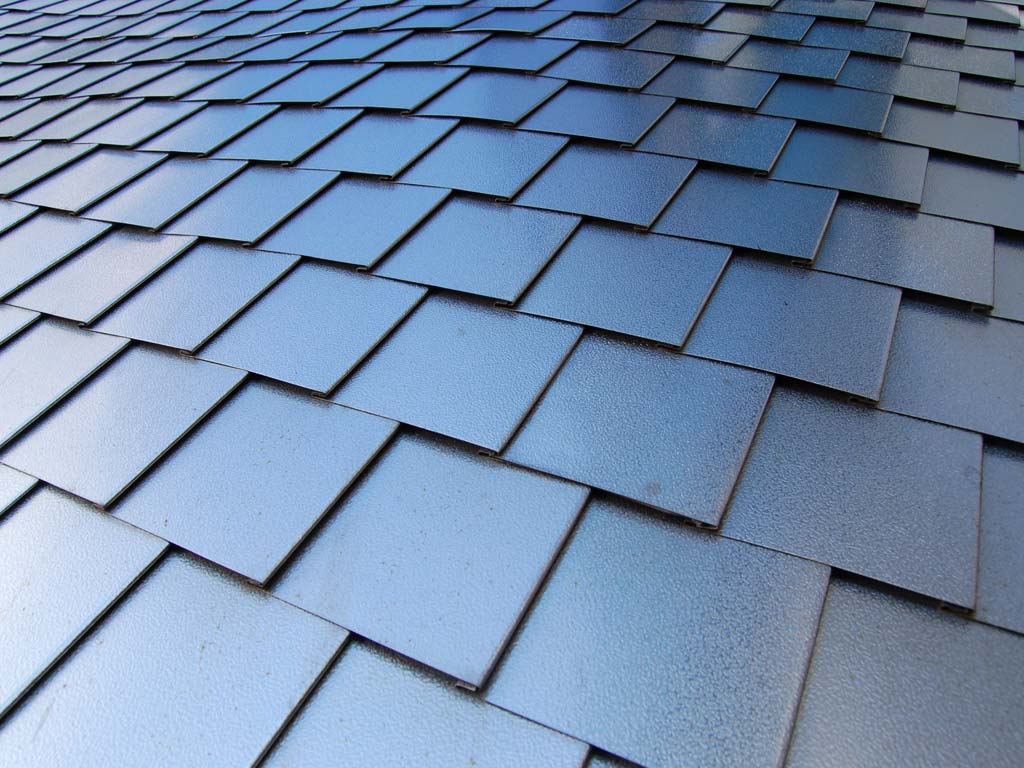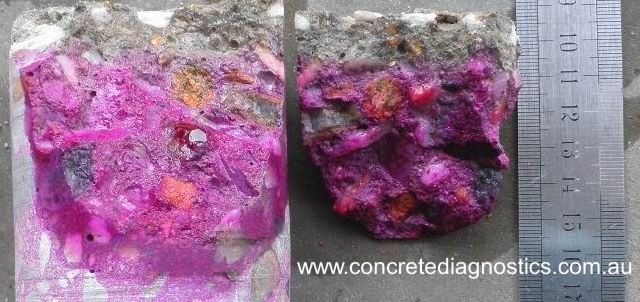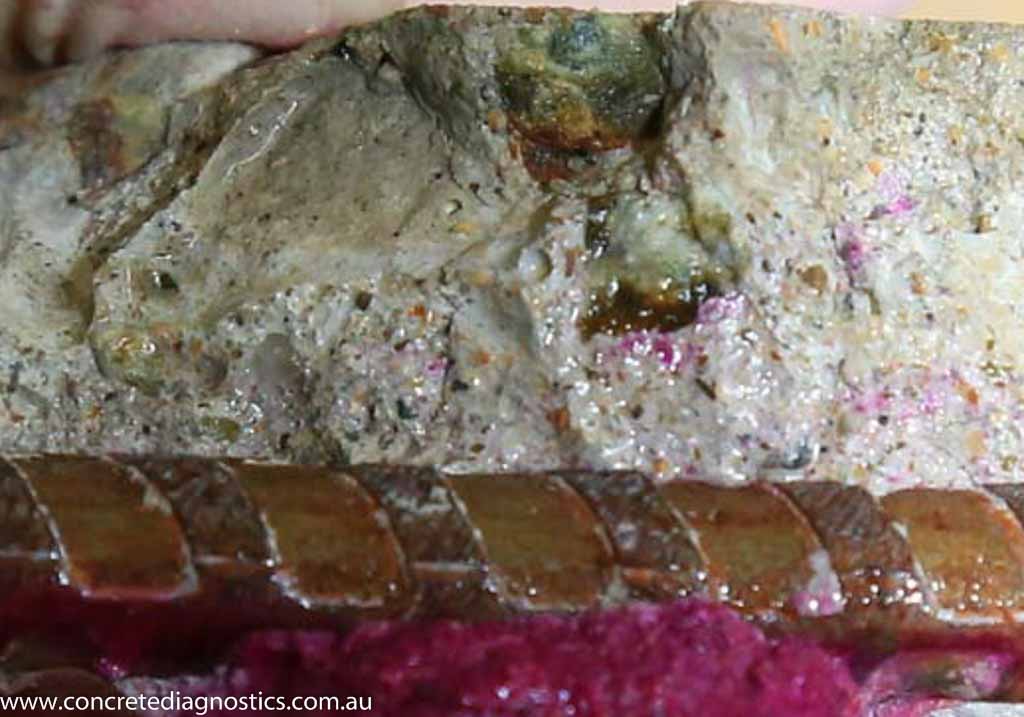




Carbonation of concrete is a process whereby carbon dioxide in the atmosphere reacts with the hydroxides within the concrete, lowering the naturally high pH (i.e. making more acidic) and destroying the passive film that protects the steel.
Concrete carbonation testing is performed on freshly fractured cores removed from the structure or areas which have been freshly chipped away from the structure.
Testing can give misleading results if performed on the external surface of a core removed from the structure, due to the concrete slurry created during coring.



Carbonation Depth of a freshly Fractured Core
Concrete Testing - Carbonation Depth

Picture showing carbonation front has reached the reinforcement